SOLDIER STORIES
OTHER BOOKS BY
JOE WHEELER
Christmas in My Heart: A Treasury of Timeless Christmas Stories
St. Nicholas: A Closer Look at Christmas (with Jim Rosenthal)
Smoky, The Ugliest Cat in the World: And Other Great Cat Stories
Heart to Heart: Stories for Teachers
Heart to Heart: Stories for Grandparents
Heart to Heart: Stories for Sisters
Everyday Heroes: Inspiring Stories of Ordinary People Who Made a Difference
Whats So Good About Tough Times?: Stories of People Refined By Difficulty
The Twelve Stories of Christmas
Heart to Heart: Stories of Love
Easter in My Heart: Uplifting Stories of Redemption and Hope
Heart to Heart: Stories for Dads
Heart to Heart: Stories for Moms
Heart to Heart: Stories of Friendship
SOLDIER
STORIES
TRUE TALES OF COURAGE, HONOR, AND
SACRIFICE FROM THE FRONTLINES
JOE WHEELER

SOLDIER STORIES
Copyright 2006 Joe L. Wheeler
All rights reserved. No portion of this book may be reproduced, stored in a retrieval system, or transmitted in any form or by any meanselectronic, mechanical, photocopy, recording, or any otherexcept for brief quotations in printed reviews, without the prior written permission of the publisher.
Published by W Publishing Group, a Division of Thomas Nelson, Inc., P.O. Box 141000, Nashville, Tennessee, 37214.
W Publishing Group books may be purchased in bulk for educational, business, fundraising, or sales promotional use. For information, please e-mail SpecialMarkets@ThomasNelson.com.
All Scripture quotations, unless otherwise indicated, are taken from the The King James Version of the Bible (KJV).
Editorial Staff: Greg Daniel, acquisition editor, and Thom Chittom, managing editor
Cover Design: Designpoint
Page Design: Lori Lynch, Book & Graphic Design, Nashville, TN
Library of Congress Cataloging-in-Publication Data
Wheeler, Joe L., 1936
Soldier stories / by Joe Wheeler.
p. cm.
ISBN-10: 0-8499-1217-2
ISBN-13: 978-0-8499-1217-7
1. SoldiersBiography. 2. SoldiersUnited StatesBiography. 3. Military history, Modern20th century. 4. Military history, Modern20th century. 5. United StatesHistory, Military20th century. 6. United StatesHistory, Military21st century. I. Title.
U51.W458 2006
355.0092'273--dc22
2006024230
Printed in the United States of America
06 07 08 09 10 RRD 5 4 3 2 1
She designed our website, and, day in and day out, responds to all those who log in seeking information about our books, about the life and times of Zane and Dolly Grey, or about the books and stories Grey wrote.
When Im slow at responding to a query, she jogs my memory and asks why its taking me so long.
Besides all this, shes always been one very wonderful daughter!
Thus it gives me great joy to dedicate Soldier Stories to
MICHELLE WHEELER CULMORE
of
ANNAPOLIS, MARYLAND
CONTENTS
IN FLANDERS FIELDS
In Flanders fields
the poppies blow
Between the Crosses,
row on row,
That mark our place;
and in the sky
The larks, still bravely
singing, fly,
Scarce heard amidst
the guns below.
We are the dead.
Short days ago we lived,
felt dawn,
saw sunset glow,
Loved and were loved,
and now we lie
In Flanders fields.
Take up our quarrel
with the foe,
To you from failing hands,
we throw the Torch
be yours to hold it high;
If ye break faith
with us who die,
We shall not sleep,
though poppies grow
In Flanders fields.
S ome years ago in an antique shop, I stumbled on what is today one of my most cherished possessions, this poem in a battered frame with a backing of crumbling brown paper. It clearly dates back to World War I and was originally hung, most likely, on the wall of a home that had already experienced loss. It now hangs in my office where I can see it every day.
Without question, We Shall Not Sleep (better known as In Flanders Fields) is the best known and most loved of all poems written during what contemporaries called The Great War. These words are handwritten in ink on the crumbling paper that backs the frame: This poem, We Shall Not Sleep, by Lt. Col. Dr. John McCrae, Montreal, Canada, was written while the second Battle of Ypres was in progress. The Authors body now lies in Flanders Fields.
Canada, too, saw two generations of its brightest and best fight and die on that soil.
 NOTHING IN LIFE IS SO
NOTHING IN LIFE IS SO
 EXHILARATING AS TO BE SHOT
EXHILARATING AS TO BE SHOT
 AT WITHOUT RESULT.
AT WITHOUT RESULT.
WINSTON CHURCHILL
INTRODUCTION:
THE FASCINATION OF WAR
JOSEPH LEININGER WHEELER
I t is well that war is so terrible, or we should get too fond of it. So mused General Robert E. Lee, as he watched his troops repel a Federal Cavalry charge at Fredericksburg.
As for history itself, what is it but the story of exciting wars broken up by boring stretches of peace? One would think that as terrible as the reality of war is, with the deaths of loved ones and the returning of veterans who are incapacitated for life, it would be extremely difficult to psych up the populace for another one.
Not so! maintained H. L. Mencken, perhaps the most cynical of all our folk philosophers: War survives simply because so many people enjoy it.... The truth is that what the human race really finds it hard to endure is peace. It can stand the dull monotony for ten years, twenty years and even thirty years, but then it begins to fume and lather, and presently we are in the midst of another major war and enjoying its incomparable exhilarations. Mencken also points out that in history, as illogical as it may appear, the thoughtful earnest leaders who try to keep us out of wars are lucky to avoid being discredited for taking such an unpopular stand: War is, to at least nine people out of ten, the supreme circus of circuses, the show beyond compare. It is Hollywood multiplied by ten thousand. It combines all the excitement of a bullfight, a revival, a train wreck, and a lynching.
Bertrand Russell concurred: I discovered to my amazement that average men and women were delighted at the prospects of war. I had fondly imagined what most pacifists contended: that wars were forced upon a reluctant population by despotic and Machiavellian governments.
Chamberlain has been reviled now for four generations. Why? Because he sold out civilization in order to appease Hitler. Of his ilk, the irrepressible Churchill quipped, An appeaser is one who feeds a crocodilehoping it will eat him last.
Somewhat surprisingly, there are many who postulate that wars serve useful purposes. In a rather earthy vein, Thomas Jefferson declared: The tree of liberty must be refreshed from time to time with the blood of patriots and tyrants. It is its natural manure.
Two thousand years ago Juvenal worried more about the debilitating effects of peace than of war: We are now suffering the evils of a long peace. Luxury, more deadly than war, broods over the city [Rome], and avenges a conquered world. Milton agreed, pointing out in Paradise Lost that peace corrupts as much as war lays waste.
And none beat the war drums more enthusiastically than those who have never experienced it themselves. This is plenty reason not to entrust the key decision-making in war to those for whom it is merely a game.
For those who have experienced the full measure of the horrors of war, the messages tend to be radically different. General Sherman, who certainly ought to have known, groused, I am tired and sick of war. Its glory is all moonshine. It is only those who have neither fired a shot nor heard the shrieks and groans of the wounded who cry aloud for blood, more vengeance, more desolation. War is hell. And famed war correspondent Bill Mauldin put it more succinctly: Look at the infantrymans eyes and you can tell how much war he has seen.
Next page
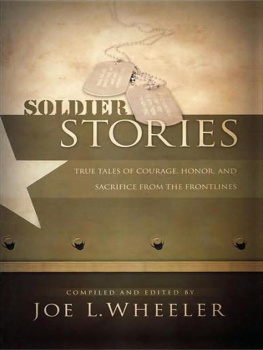
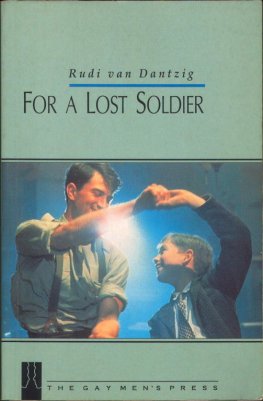

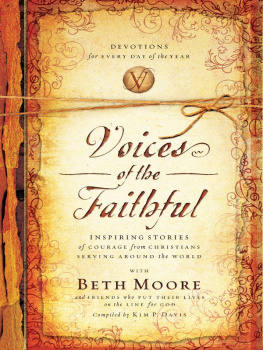
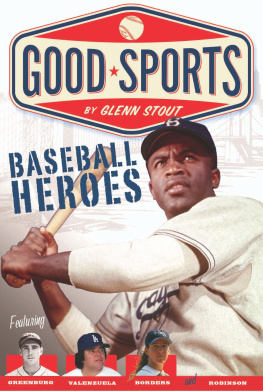
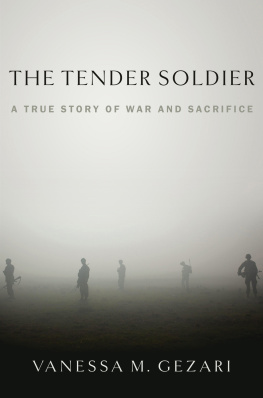
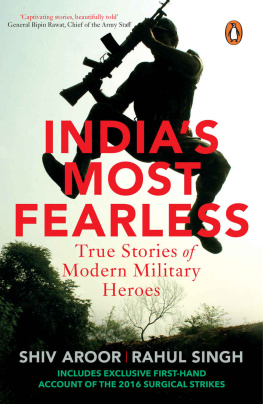

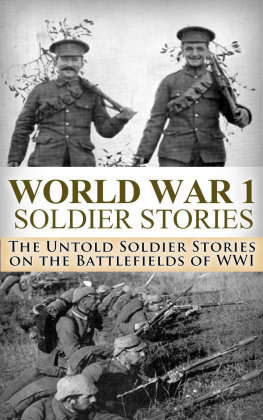


 NOTHING IN LIFE IS SO
NOTHING IN LIFE IS SO